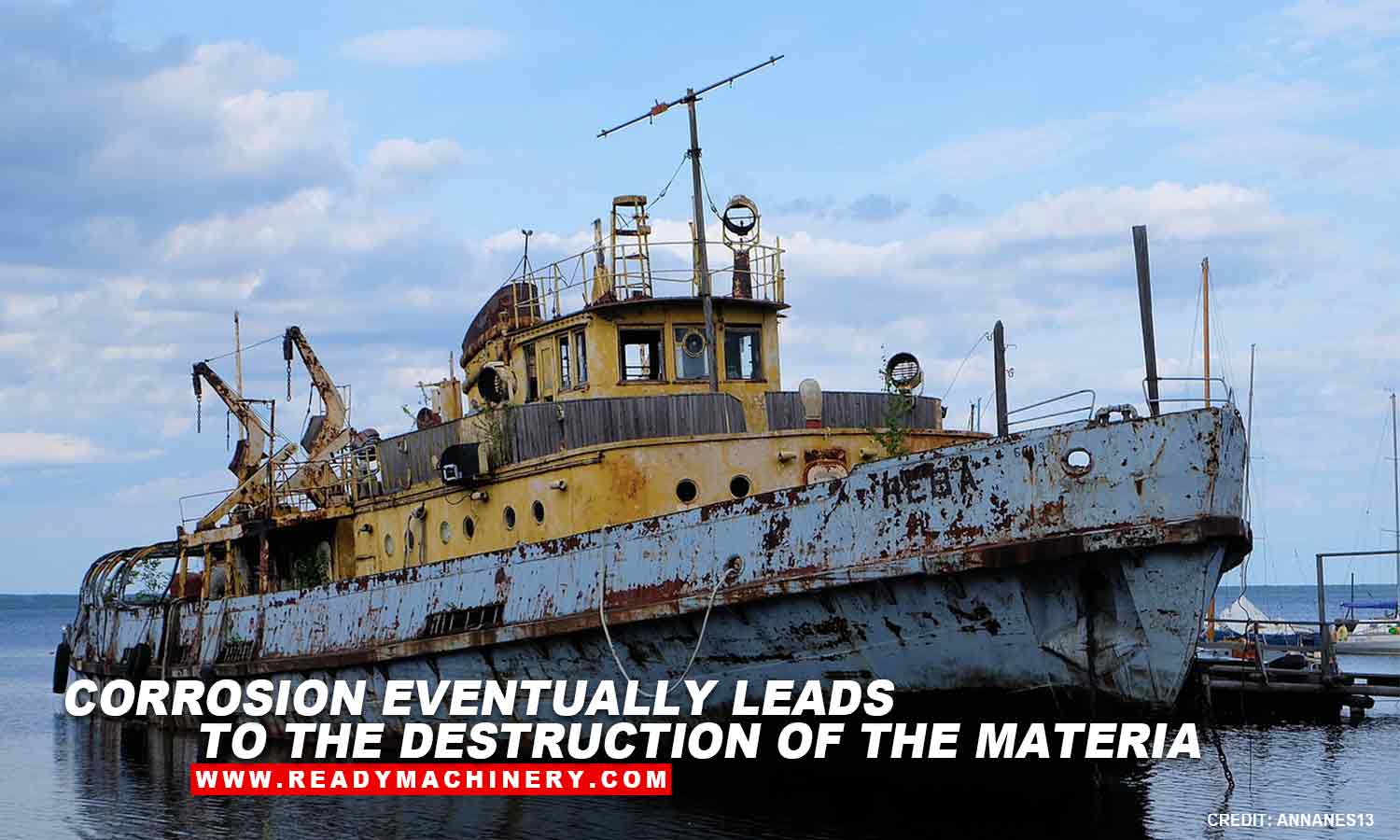Transporting heavy machinery to another part of the world often requires shipping overseas. The nature of this form of transportation makes your equipment vulnerable to damage from the saltwater. Rust prevention is vital when shipping machinery and equipment overseas.
Whether you’re relocating your plant or simply moving a single piece of machinery, the receiver won’t be pleased to see rust or corrosion. How do you ensure your precious cargo arrives undamaged?
Learn about the risks of shipping overseas and how an experienced machinery moving company can prevent those risks from happening.
What is Saltwater Damage?

Anyone who lives on the coast of an ocean is likely familiar with the effects of saltwater. Their cars rust faster than the vehicles inland, and the risk of a flood is more worrisome because saltwater carries a small electrical charge. In terms of shipping, machinery companies on the coast face the risks of saltwater damage daily. They must take advanced precautions to avoid such damage.
Even if your company isn’t on the coast, your equipment becomes vulnerable when it ships overseas. There’s the potential for rust to develop, or even worse, corrosion.
We often think of them as being the same process, and to an extent, they are. Rust is a specific kind of corrosion that occurs when certain chemicals come in contact with iron or iron alloys. A common material in heavy machinery, iron gets rusted when it comes in contact with moisture and oxygen. Rust often looks like red or orange flakey metal. Corrosion occurs when a variety of chemicals, especially salt, come in contact with many types of materials. It can affect wood, metal, plastics, and even skin. The result is a degraded quality of material and structural weakness.
It’s easy to fall into the trap of thinking that by preventing rusting, we have prevented corrosion. But while the iron or steel parts are safe, unprotected aluminum, rubber, plastic, or copper can likewise corrode, causing preventable damage to the machinery.

In transport overseas, the salt in the ocean air can cause faster corrosion than the inland air. In fact, salt water corrodes metal five times faster than fresh water. Plus, the bacteria found in saltwater sometimes feeds on iron, leaving behind rust in their excrement. To protect your equipment during shipment, it’s crucial you take extra precautions and work with a moving company that is familiar with corrosion and rust-prevention.
How to Protect Your Machinery During Overseas Shipping
There are a number of ways to protect your machinery during shipping. Taking these extra steps ensures your equipment arrives in the state you sent it and lasts for many more years to come.
- Allow Metal Parts To Cool Before Packing
Your relocation schedule could be tight and hectic. Some machinery could be packed for shipment just hours after being used. This isn’t preferable because warm metal can cause “packaging rain.” You might notice small water droplets and moisture inside the plastic film around your equipment. This moisture can lead to rust and corrosion and is caused by sealing the warm metal in packaging. It’s crucial you allow the equipment to fully cool off before packing it away for shipping.

- Clean All Metal Parts
Before sending the machinery off for shipping, it needs to get cleaned. All dust, dirt, mud, and debris should be wiped off. These pieces of debris can attract moisture during the shipping process. Saltwater can absorb into the dried on mud and thus come in contact with the metal. Ensuring your machinery is clean as well as dry is imperative.

- Use Appropriate Packaging Materials
If the material your equipment is packed in is too thin, outside elements can infiltrate it. That could mean saltwater and moisture from the ocean air coming in contact with your machinery. Experienced machinery moving companies use materials that are thick enough to deter punctures and have advanced sealing methods. Paper, thin plastic, and films are not strong enough to prevent infiltration.
The packing materials used also need to be clean, dry, and corrosion-resistant. Cardboard absorbs moisture easily, so covering a piece of metal with it during overseas shipping isn’t optimal. If materials must be placed between equipment for safety during travel, choose corrosion-inhibiting materials like teflon-, polystyrene-, or polyethylene-based materials. The shipping company you work with will likely prioritize keeping the equipment as dry as possible during transport.
- Rust-proof Before Shipping
There are a handful of effective rust-proofing methods to use on your machinery and equipment before shipping. The first is galvanization, which consists of dipping the metal in layers of steel and zinc. This method will last for years and doesn’t chip or peel. It protects the metal from rust, corrosion, and protects it from damage from jostling during the transport process. Plus, you can add an oil-based paint for long shipment journeys. It sits on the metal like a top layer preventing salt and other chemicals from touching the metal. However, it does require removal after the shipping journey with a solvent-based compound.
Another rust-proof method is shrink wrapping. Thick, durable plastic is vacuum-sealed around the equipment. Not only does it protect the metal from corrosive chemicals, but it also keeps it clean and dry. Shrink-wrapping is convenient for storing delicate pieces or machinery with delicate parts. All components are wrapped together so nothing can get lost or damaged.
The last common form of rust protection during overseas shipping is containerization. Storage containers are prepared to hold pallets and smaller equipment pieces. The container is completely sealed and packed efficiently to prevent jostling. This is one of the most common overseas shipping options, although it’s not applicable to large machinery or equipment.
How to Best Remove Rust
What happens if you don’t take these precautions and your equipment shows signs of corrosion or rust when it arrives? Machine tool rust prevention is the best solution to rust and corrosion, but if it’s too late for prevention, what do you do? There are a variety of machine and tool rust removal methods, some work better than others.
Some use handheld laser devices that have intense wavelengths that penetrate the rust and destroy it. Others swear by rust-dissolving chemicals that contain hydrochloric or phosphoric acid. However, these chemicals are harsh and the person administering them should wear proper protection. Often, the best rust remover for metal can be found on the shelves of your local hardware store.

When it comes to shipping heavy machinery and equipment overseas, choose a reputable moving company. Not all companies will take the risks of corrosion seriously. Your equipment is your business investment; it should last many years and not be cut short due to rust and corrosion. Ensure the moving company you choose prioritizes the precautions and prevention methods listed above.
Ready Machinery Movers has been providing advanced export packaging and overseas shipping for over three decades. We ensure that every piece of equipment and machinery is completely protected from saltwater damage. Rust and corrosion are concerns we take seriously, which is why our customers trust our services. To request a quote on our overseas shipping services, send us a message or give us a call toll-free today: 1-800-211-2500.
